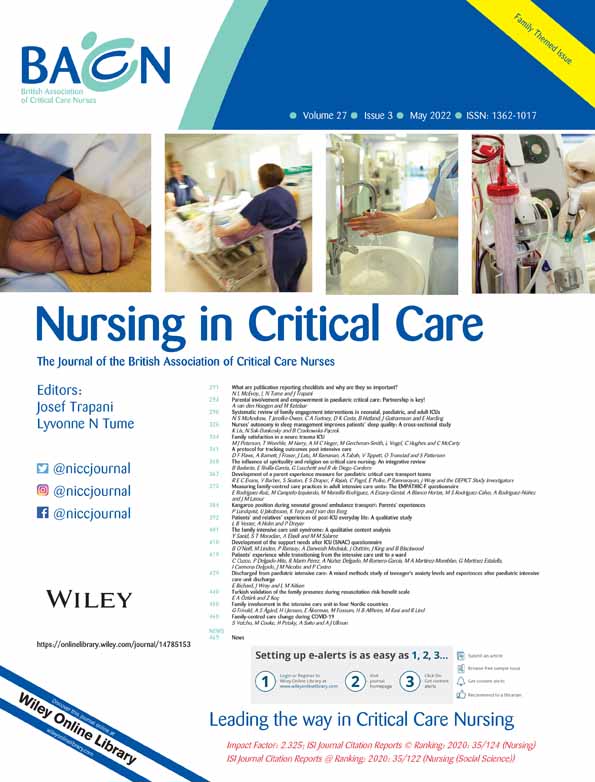Nurses' autonomy in sleep management improves patients' sleep quality: A cross-sectional study
Abstract
Background
The current literature indicates that intensive care (ICU) patients' sleep quality is generally poor, which is associated with serious physical and psychological consequences.
Aims and objectives
To describe the practices nurses use to provide good-quality sleep to adult ICU patients and assess nurses' perceptions of patients' sleep quality and nurses' professional autonomy in sleep management.
Design
A descriptive-correlational, cross-sectional study.
Methods
A total of 232 ICU nurses from four hospitals in Poland were recruited. Data were collected between May and August 2019 using a previously developed questionnaire and analysed using descriptive statistics and non-parametric tests.
Results
A total of 119 nurses took part in the study (response rate: 51%). On average, nurses rated patients' sleep quality as moderate (4.44 ± 2.23, scale 0-10). Most of the respondents (95.8%) said they did not use any sleep protocol. Various strategies to improve patients' sleep were used sporadically (2.64 ± 1.55, scale 1-5). The use of sleep quality assessment methods was positively correlated with patients' sleep quality (rho = 0.22, P = .02). Nurses' professional autonomy regarding sleep management was assessed as average (4.34 ± 2.43, scale 0-10) and was correlated with the patients' sleep quality (rho = 0.25, P < .01). Nurses who rated their autonomy in patients' sleep management more highly (rho = 0.29, P < .01) and more often influenced patients' sleep decisions (rho = 0.24, P < .01) used more methods to improve patients' sleep.
Conclusions
Strengthening the professional autonomy of ICU nurses and creating a reliable sleep assessment and improvement tool, which would describe strategies nurses can implement independently could increase sleep quality among ICU patients.
Relevance to clinical practice
Addressing organizational problems, which hamper the patients' sleep management by ICU nurses could result in using more strategies to provide good-quality sleep to ICU patients. There is a need for clinical guidelines regarding patients' sleep management to help educate and guide nurses how to independently use sleep improvement methods.
Open Research
DATA AVAILABILITY STATEMENT
The data that support the findings of this study are available from the corresponding author, upon request.




